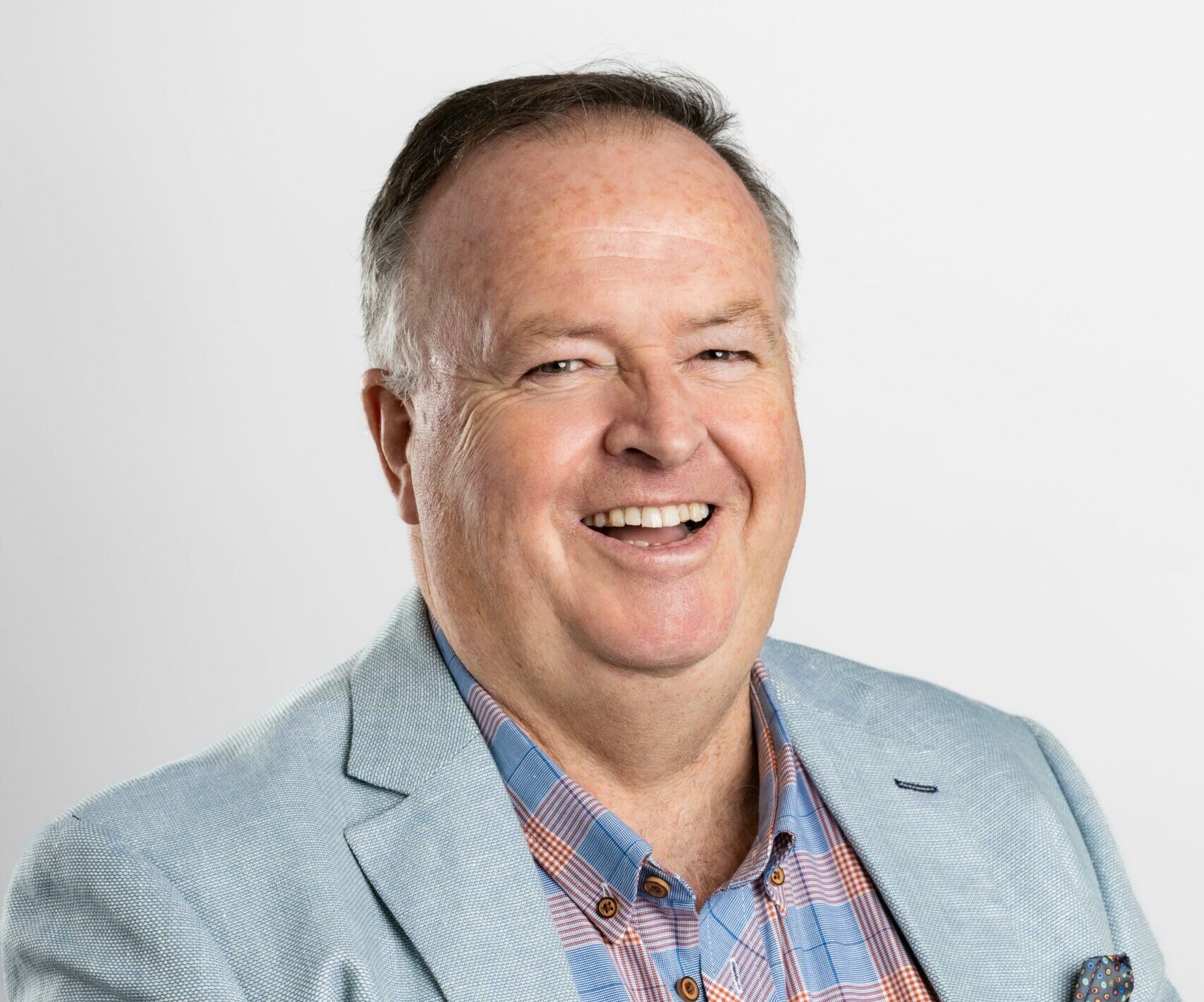We spoke with lifelong Nottingham Forest fan, David McGovern about getting into financial services, his specialisms in tax, trust and pension planning and why he’s passionate about encouraging young people into financial advice.
How did you get into Financial Services?

I studied Agricultural Science at Leeds as I had lived on small holding in a mining village and worked on farms most of my childhood and did not want to go down the mine. Enjoyed University where I spent my time playing Volleyball for the three years at University, where we won the UAU Volleyball Championship. I wanted to work outside and be incentivised for my work but agriculture was a little pedestrian from a sales point of view.
Introduced to insurance industry from my friend Katherine Knight who worked for UKPI. I applied to Clerical Medical in 1985 and started as a graduate trainee in the Bristol head office. As part of the graduate intake, I went round all the internal departments, where I had the good fortune of meeting my future wife.
Initial placing was in Croydon, South London with a forthright Northern chap who did not like graduates. Took a while to get his respect but he was one of the best managers I worked for. I worked as a Trainee Life Inspector, as they are known now and used to have to work out premiums from a rate book for life insurance but our main market moved to investments under trusts. I specialised very early on in inheritance tax and PETA plans which evolved when Gift with Reservation of Benefit came in 1986. I really enjoyed the competitive environment and working with Independent Financial Advisers (IFAs) where we had no real market presence.
Working for Clerical Medical (now Scottish Widows) for 16 years covering areas from Brighton to Slough and up to the West End, I specialised in international investments tax and trust planning. At that time I played rugby and captained Redhill and Reigate. Although we loved living down in Redhill, Surrey, once our daughter was born I applied to take over the International Sales Specialist in Bristol in 1995 when we moved over to Yatton, just opposite the rugby club.
I took the South West from one of the worst performing areas to one of the best outside London after two years. As a consequence of our continued success, I took up the role of Head of International Sales for the whole of the UK. Being stuck in an office, having meetings about nothing and the politics that came with it made me realise that I was better off seeing clients and moved to the international role in Birmingham. I was fortunate to work with Jayne Potter (now MPA office manager) and Gary Cowley who is now part of MPA covering the Midlands where we had some very enjoyable years, but traveling 30,000 miles a year is not good for you. I was then offered a job with Canada Life International.
I left in 2002 to help develop the Canada Life International brand in South West. I became regional manager in 2005 and within 18 months had turned the team around to become the best producing area within Canada Life. As Head of Sales for the UK in 2007 the role transcended from being focussed internationally to managing the whole sales team. We were UK based, selling offshore bonds under trust, which offered more investment flexibility and heritance planning opportunities.
I was also employed by Coutts and RBS to assess their offshore bonds to reduce income tax liabilities, improve processes to mitigate future risk and guide advisers on inheritance tax.
I took voluntary redundancy in 2009 and promoted tax planning strategies such as employee benefit trusts, VCTs, EIS and overseas funds before joining an IFA firm in Somerset. That turned out to be far too corporate with more process than focus on clients so we quickly parted company as it wasn’t a great fit and far too restrictive.
When did you join MPA?
I joined MPA over eight years ago as a self-employed adviser as it had the correct ethos with the main focus being on the client/s. I have managed to build up a lovely client bank of people who I love to bits. It has to be a partnership, clients have to feel comfortable as its their money and they have to be able to have an honest two way conversation.
I have worked from home for over 20 years which allows me to focus on building relationships and spending time with clients as and when necessary, which is important, so I am rarely in the office.
What is your area of expertise?
Tax, trust and pension planning. The more complicated the better. I work on investment and pension planning for individuals and companies. I like to add value. We often work as a team with other professional contacts, such as solicitors and accountants, to get the client the best results, particularly when it comes to estate planning and protection for directors of companies.
Estate planning has come more into focus as house prices have risen so much and people are inheriting more than ever before so it’s important to plan how best to pass it down the generations without losing all access.
How have your clients’ financial requirements changed as a result of COVID?
It has made people realise why wait to buy something that may have been put off for a future date. More money has been realised to help their children and immediate families, as life is too short.
There’s been a big change in people’s mentality. Before people were worried about running out of money, but now they’ve realised you can’t take it with you and might as well enjoy it while it’s there.
For any clients considering financial advice, what would your advice be to them?
Get on with it. Do not procrastinate.
Paying for a financial plan to set a financial goal or reassure you that you might be OK in the future is worth its weight in gold.
Many people have had poor advice in the past – lack of trust can be an issue and that takes a long time to get over. One client had lost 1.5 million Euro in poor investment advice from a former adviser. Understandably, people can become cynical once something like that has happened.
Do it sooner rather than later and understand you only pay for what you get. Make sure you are comfortable with your adviser and remember it’s your money.
My clients tend to be between the £500,000 to £5million level, as the larger financial institutions such as banks do not offer a personal service at this level, but whatever the investment level everyone is important.
What is your most memorable case so far in your career, and why?
I was introduced to a lady with an elderly aunt and uncle with a ‘friend’ in Cyprus. The couple had early signs of dementia and the friend was getting them to draw out large amounts of money which they were not able to remember and had no records for. Effectively it was being stolen.
On return to the UK I worked with their Attorney to make sure their existing offshore bonds continued to be disregarded for assessment for financial support from the council for provision of care. We also utilised the time they were non-resident so that although their offshore bonds had large gains we have still been able to extract £35,000 to £40,000 per annum since 2016 and still keep the income below their personal allowance, starting rate of tax and savings tax rate so they have maximised the use of their investments for their care needs. Use of Time Apportionment Relief can be useful if people are aware of it when they return from abroad.
With the tax year end approaching, what is your advice to clients that are yet to fully utilise their personal allowances?
Do not over commit and plan well ahead of any deadlines. With the market as it is it is usually a good time to invest accepting that it is quite volatile at the moment.
Use your allowances if you can afford to. Be pragmatic about it. Most leave it too late. Best do it when there is plenty of time before the tax year end and markets are settled.
Ask yourself can you commit cash to the next five years without needing to dip into investments?
Plan ahead. We try and work on it around summertime.
Final words…
I love this job and think it’s fantastic as most of my clients who have worked hard to build a secure future for them and their families.
If money is all you care about, you are doing it for the wrong reasons. Most of the job is about emotional intelligence. If you love and care about people, can communicate effectively and treat everyone equal regardless of their wealth, qualifications are secondary to these skills this is very rewarding occupation.
It can put younger people off because they haven’t got financial qualifications. We need more young people in the industry and I am a big believer in apprenticeships to encourage people from all backgrounds and experience.
I have taken a role as Educational Champion on behalf of CII to present to school some of the financial skills they will need to know when they move on from school.
If you are emotionally intelligent, understand and care about people, you will enjoy this job as there is a vast opportunity for a rewarding career in a professional business.
For more information about MPA Wealth Management services visit: https://www.mpafm.co.uk/services/.
